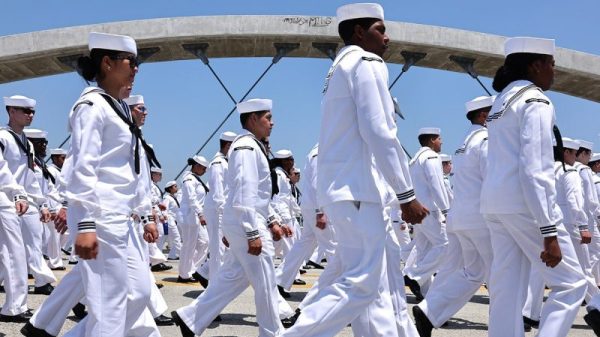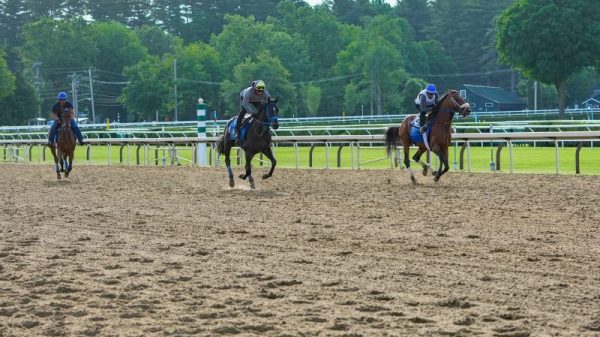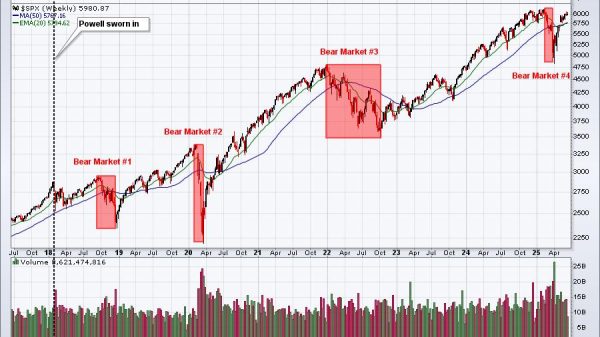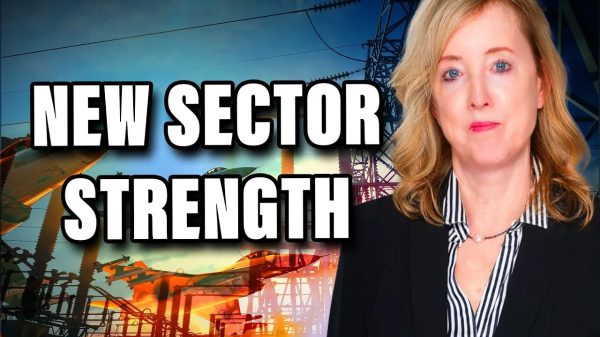Like so many farms, meat-packing plants and other industries that rely heavily on immigrant labor, horse racing is full of people who supported President Trump’s campaign in 2024 but did not believe he would target their businesses with the mass deportations he promised.
“They were convinced that he was only going after the bad guys,” said Will Velie, an immigration attorney who specializes in the horse racing industry. “But the definition of bad guys to a lot of people in the administration is anyone here without status.”
And now, perhaps predictably, there’s reason for horse racing to be nervous that it’s about to have a major problem on its hands.
An ICE raid Tuesday morning at Delta Downs in Vinton, Louisiana, where more than 80 backstretch workers were reportedly detained, should be a wake-up call for an industry that would simply not be able to function without a workforce of grooms and hotwalkers and stall cleaners who are, by some credible estimates, roughly 75% immigrants.
They come from places like Venezuela, Panama, Colombia and Mexico, working low-wage jobs but filling indispensable roles, caring round-the-clock for animals worth hundreds of thousands, even millions of dollars.
Most of these workers at the glamorous tracks like Churchill Downs and Saratoga are here on H-2B visas that the prominent and well-resourced barns manage to secure for them, allowing them to travel from one race meet to the next.
Even in the best of times, though, it can be a tricky system to navigate with just 66,000 issued each year by the U.S. government, long processing times and an intricate renewal mechanism. And, of course, these are not the best of times. In a climate where immigrant construction workers are getting systematically arrested in Home Depot parking lots, the only thing that would prevent racetracks from being a big, fat target for ICE are the whims of a president.
“We’re out in the middle of the open,” Velie said. “There’s no hiding. You’re in the middle of a town and they can surround you and come round up a lot of people at once.”
‘Everybody’s nervous’
Ever since it became clear during the first weeks of the current Trump Administration that its posture toward deportations would be more aggressive than in his first term, it has been horse racing’s barely spoken but impossible-to-ignore fear, lingering in the background every day on the backside.
“Everybody’s nervous about it,” prominent trainer Dale Romans told reporters during a Kentucky Derby-week news conference set up to specifically address the threat posed by a potential ICE raid at a racetrack. “If we couldn’t have an immigrant workforce on the backside, I don’t know how horse racing exists. We need a common sense path to long-term legalization. We’re not talking citizenship, just some kind of work permit.
‘The perfect scenario is we get an amnesty program that leads to a work permit. If you’re vetted, if you’re proven not to be a criminal, you pay your taxes, you are sponsored by an employer, you have a right to work in the United States. That’s all we’re asking for.”
It is, of course, a difficult topic to get most people to address. Not just because trainers or owners are reticent to draw undue attention to themselves but because of the clear political implications: The racetrack is, by and large, an unabashedly Republican-leaning ecosystem. Many prominent owners and racetrack executives have direct lines to Trump himself.
And that’s why it seemed like there was relief last week when the Department of Homeland Security issued guidance exempting the agricultural industry, hotels and restaurants from these raids due to the harm being inflicted on those businesses. Though horse racing wasn’t specifically mentioned, it clearly falls into the same category.
Then, a couple days later, the White House reversed course and decided to resume those raids. It didn’t take long for a racetrack to be on the hit list.
“The head of the New York Racing Association, Marc Holliday, is business partners with (Trump’s son-in-law) Jared Kushner, so he had pretty strong assurances there would be some type of executive action protecting the horsemen and agriculture workers,” Velie said. “But I think there’s a lot of competing factions inside the administration battling over this.”
Sweeping up ‘folks that are constantly caring for the horses’
Regardless of where you fall on the political spectrum, the issue of whether horse racing should be relying on cheap immigrant labor is fair game for critique. Steve Asmussen, the all-time winningest trainer in North America, earlier this month finally settled a 10-year-old court case with the Department of Labor over hundreds of thousands of dollars in overtime and back pay. Over the years, whenever wages and living conditions of backstretch workers have been subject to media scrutiny, it’s rarely made the industry look good.
It’s a tough way to make a living. But in the end, for thousands of people who desperately need it, it is a living. And their symbiotic relationship with horses who need to be fed and taken care of isn’t just a human story. One of the biggest concerns coming out of any potential racetrack raid is what happens to the horses while their grooms are being arrested.
‘The problem is that the kind of work the people on the backside, the grooms and hotwalkers, those folks that are constantly caring for the horses and making sure they’re maintained and healthy, that job is 24-7 just a real difficult job,’ said Peter Ecabert, the general counsel for the National Horsemen’s Benevolent and Protective Association.
‘It’s hard to get anyone to do that job, and we depend a lot on immigrants and they’re hard-working and good people. Obviously there are a couple that may have run afoul of the legal system, and in those cases, especially if there’s a violent situation we don’t want them around either. We’d work with ICE in any way possible to make sure those people are taken into custody and transported back after their due process hearing. But as far as an unannounced raid on the backside of racetracks, that just puts all of us in a real difficult situation and puts the horses at risk.’
Chelsea Perez, the senior program manger of equine protection at Humane World for Animals, told USA TODAY Sports that it was critical for any law enforcement action to include a process where the safety and well-being of the horses is secured.
“Horses are large, easily frightened animals who can suffer serious injury or injure others when not properly handled,’ she said. ‘The development of appropriate protocols is key to effective emergency response for both law enforcement agencies and equine facility managers.”
Meanwhile, there is a school of thought among those USA TODAY Sports has spoken with that a racetrack in Louisiana was particularly vulnerable to an ICE raid for a few reasons, including the fact that racing in the state is operating under a court injunction preventing the Horseracing Integrity and Safety Act (HISA) rules from being enforced. A HISA spokesperson declined comment, and the National Thoroughbred Racing Association did not answer a request for comment.
Delta Downs is also currently running its quarter horse meet, where there would be stronger suspicion about workers without visas being present than at higher-profile Thoroughbred tracks.
Still, there’s a potential chilling effect for the whole industry now that an ICE raid has taken place at a racetrack, particularly given the lack of consistent message from the Trump Administration.
‘There is a lot of tension on the backside,’ Ecabert said. ‘People are concerned, obviously, that there’s going to be (another) raid and a lot of apprehensive people for sure.’
Of course, this is what many of those owners and trainers voted for – even if they didn’t realize it.
“I got calls from tracks all over the country (the next day), and every one of them was saying the same thing: ‘If it happens there, it can happen here. What’s our plan?’ Velie said. “The long-term plan is to get your workforce on to stable visas, but in the short term, we’re stuck.”





























